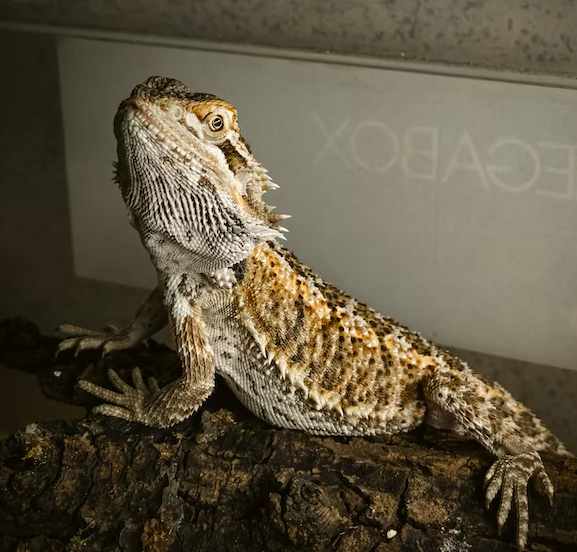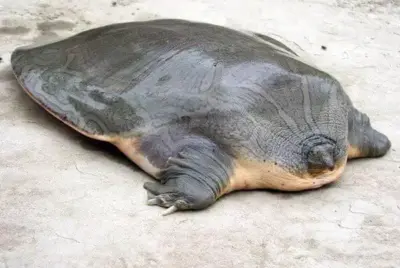Can Bearded Dragons Eat Spinach?
As a passionate enthusiast and advisor for bearded dragon care, I often receive questions about what foods are safe and nutritious for these incredible reptiles. One common inquiry is whether bearded dragons can eat spinach. In this article, I will provide you with valuable insights into the topic and offer helpful suggestions based on my expertise.
Introduction
Bearded dragons are omnivorous creatures, which means they can consume both plant-based and animal-based foods. It is essential to offer a diverse diet to meet their nutritional requirements. While leafy greens are generally a staple in their diet, certain greens may pose concerns. One such green that often sparks curiosity is spinach.
Nutritional Needs
Before we delve into the specifics of feeding spinach to bearded dragons, let’s first understand their nutritional needs. These reptiles require a balanced diet consisting of protein, vitamins, minerals, and fiber. The right combination of these nutrients ensures optimal growth, vitality, and overall well-being. Read more about the bearded dragon diet here.
Benefits of Spinach
Spinach, known for its rich green color and health benefits in humans, does offer some nutritional value for bearded dragons. It contains essential vitamins like vitamin A, vitamin C, and vitamin K, along with minerals such as calcium and iron. These nutrients contribute to various bodily functions and support overall health.
Incorporating Spinach
While spinach can be included in a bearded dragon’s diet, it should be offered in moderation and as part of a varied menu. The key is to strike a balance between different greens, vegetables, and protein sources to ensure a well-rounded nutritional intake. This approach mimics the diversity of their natural diet in the wild.
Preparing Spinach
Proper preparation of spinach is crucial to avoid any potential risks. It is essential to thoroughly wash the leaves to remove any dirt, pesticides, or other contaminants. Additionally, finely chopping the spinach into small pieces makes it easier for bearded dragons to consume and digest.
Quantity of Spinach
When it comes to feeding spinach to bearded dragons, moderation is key. While it offers nutritional benefits, excessive consumption can lead to health issues. As a general guideline, spinach should constitute no more than 10-20% of their overall diet.
Variation in Diet
Offering a variety of foods is crucial to meet a bearded dragon’s dietary needs. While spinach can be a part of their diet, it should not be the sole leafy green. Including other greens such as collard greens, mustard greens, and dandelion greens ensures a broader spectrum of nutrients.
Potential Risks
While spinach has its nutritional benefits, it is important to be aware of the potential risks associated with feeding it to bearded dragons. Spinach contains oxalates, which can bind calcium and potentially lead to calcium deficiencies. Therefore, moderation and variety are essential to avoid any imbalances.
Signs of Overfeeding
Monitoring your bearded dragon’s diet and observing their behavior and health is crucial. Overfeeding spinach or any other food item can result in digestive issues, nutrient imbalances, and even long-term health complications. Watch for signs such as diarrhea, lack of appetite, or changes in stool consistency, as these may indicate an issue with their diet.
Conclusion
In conclusion, while spinach can be included in a bearded dragon’s diet, it should be offered in moderation and as part of a diverse and balanced menu. The nutritional benefits it provides, such as vitamins and minerals, can contribute to their overall health. However, it is important to remember that variety is key, and spinach should not be the sole leafy green in their diet.
By incorporating a range of greens, vegetables, and protein sources, you can ensure that your bearded dragon receives a well-rounded and nutritionally complete diet. Remember to wash and prepare the spinach properly, finely chop it for easy consumption, and monitor your pet for any signs of overfeeding or digestive issues.
If you have further questions or concerns about feeding spinach to your bearded dragon, it is always recommended to consult with a reptile veterinarian or experienced reptile enthusiast who can provide personalized guidance based on your dragon’s specific needs.
For more information on bearded dragon diet restrictions with fruits and vegetables, click the links below:
Can Bearded Dragons Eat Tomatoes?
Can Bearded Dragons Eat Strawberries
Can Bearded Dragons Eat Bananas?
Bearded Dragon Diet: Can Bearded Dragons Eat Apples?
Can a Bearded Dragon Eat Grapes? What Fruits Can They Eat?
FAQs (Frequently Asked Questions)
1. Can bearded dragons eat spinach every day? While spinach can be included in their diet, it is not recommended to feed it to bearded dragons every day. Moderation and variety are key for a well-balanced nutritional intake.
2. Can spinach cause calcium deficiency in bearded dragons? Spinach contains oxalates that can bind calcium, potentially leading to calcium deficiencies. It is important to offer a diverse diet and not rely solely on spinach as the leafy green.
3. How should I prepare spinach for my bearded dragon? Thoroughly wash the spinach leaves to remove any dirt or contaminants. Finely chop the leaves into small pieces to make it easier for your dragon to consume and digest.
4. Can I feed baby bearded dragons spinach? Spinach should be introduced to baby bearded dragons gradually and in small amounts. Their diet should primarily consist of appropriate protein sources and a variety of other greens.
5. What are the alternative greens to feed my bearded dragon? There are several alternative greens you can offer, such as collard greens, mustard greens, and dandelion greens. These provide a wider range of nutrients and contribute to a balanced diet for your bearded dragon.
Remember, providing a nutritious and varied diet is essential for the health and well-being of your bearded dragon. By understanding their dietary needs and making informed choices, you can ensure they thrive and lead a happy, healthy life.




